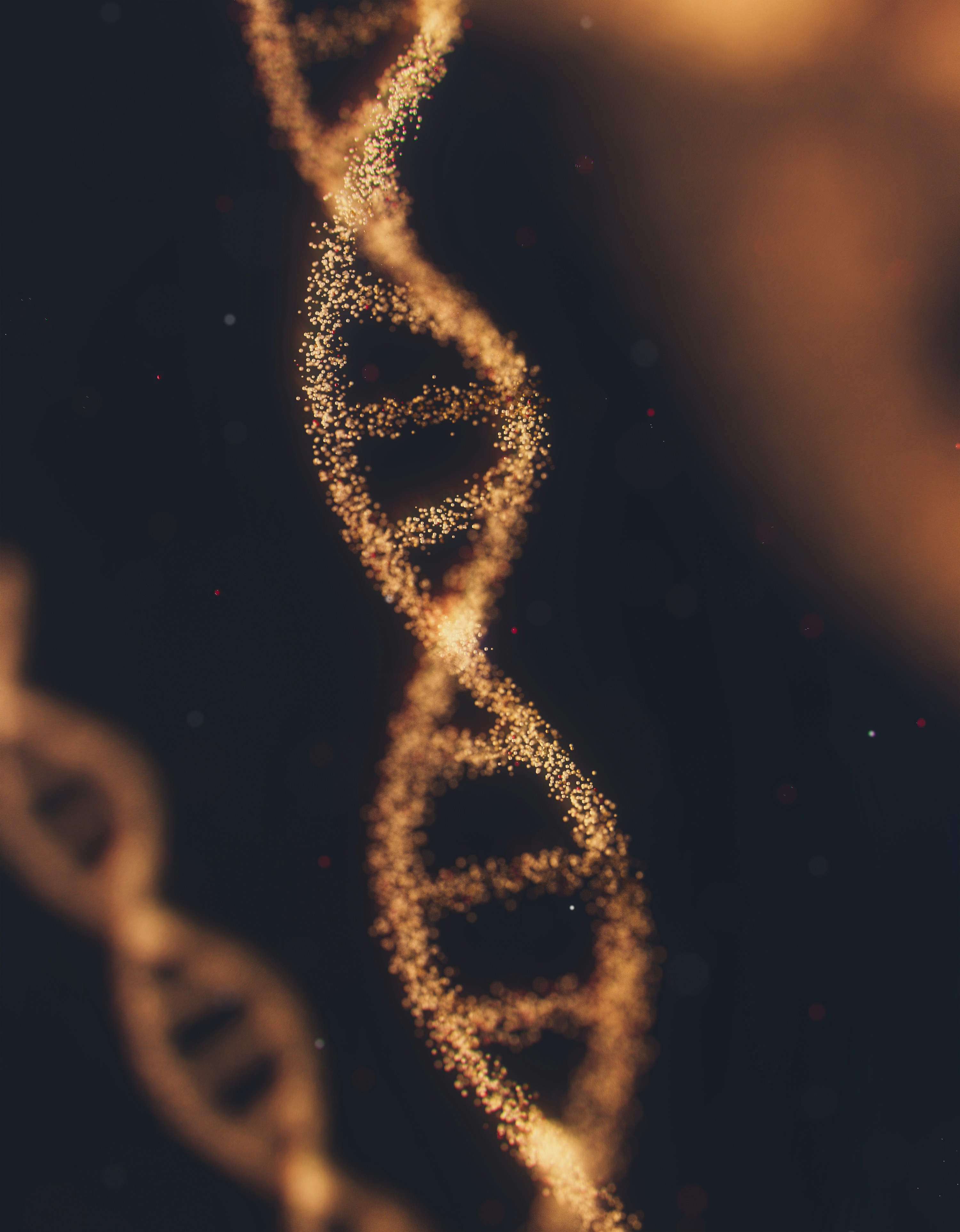The real story of women's brain health is far more nuanced and reveals why brain health deserves special attention at different life stages, particularly for women.
What the Research Actually Shows
The answer to whether women's brains age faster depends entirely on what you're measuring. Different biological systems in the brain age at remarkably different rates between the sexes, creating a complex picture that defies simple explanations.

Where Women's Brains Age Faster
At the molecular level, the evidence is striking. Research analyzing gene expression in the brain's frontal lobe found that 98% of 667 aging-related genes change faster in women than in men.1,2 These changes don't just happen later in life, they start earlier, too. Studies on female mouse brains showed that 44.2% of genes underwent significant aging-related changes between 6-9 months of age, while only 5.4% of genes changed in male brains during the same period.3
These accelerated changes include decreased energy production, reduced neural function, and increased immune responses, all hallmarks of brain aging.2 Researchers noted that these early changes in female brains "signal the onset of a hypometabolic phenotype at risk for Alzheimer's disease."3
Beyond gene expression, large-scale brain imaging studies reveal that women experience faster functional connectivity decline during aging.4 Analysis of over 25,000 healthy adults found that classification accuracy for distinguishing age groups was consistently higher in females, and females showed a faster rate of cognitive decline with age.4
The menopausal transition adds another layer of complexity. As estrogen levels drop, the female brain undergoes changes that are "specific to menopausal endocrine aging rather than chronological aging."5 These include decreased gray matter volume, increased white matter abnormalities, and reduced brain glucose metabolism, particularly in women experiencing early menopause or frequent hot flashes.5,6,7

Where Women's Brains Age More Slowly
It's not all bad news, though. When scientists measure metabolic aging rather than gene expression, they find the opposite pattern. Women's brains appear metabolically 3-4 years younger than men's brains at any given chronological age.8,9
This "metabolic youth" persists from young adulthood through old age and stems from higher brain glucose utilization and aerobic glycolysis in women.8 The researchers suggest this could provide "some degree of resilience to aging-related changes."8
Structural brain imaging tells a similar story. A 2025 study analyzing over 12,500 brain scans found that men experience greater reduction in brain volume across more regions during aging than women do.10 Another analysis found that structural brain aging was over 7 years younger in women compared to their chronological age, while it was over 8 years older in men.11
Women also maintain better cognitive performance longer than men. They show superior memory, particularly verbal and episodic memory, throughout life, even in very old age, until and unless they develop dementia.12 Recent research identified the KDM6A gene on the X chromosome as a key resilience factor that's more highly expressed in women and associated with slower cognitive decline.13,14

The Alzheimer's Paradox
This complexity helps explain a troubling statistic: women comprise two-thirds of Alzheimer's patients.14,15,16
Women appear to maintain resilience longer despite accumulating pathological proteins like amyloid and tau, then experience more rapid decline once a tipping point is reached.12 Brain imaging shows women initially maintain more cognitive function and hippocampal volume for a given burden of amyloid-β, but "when the burden becomes too great, their hippocampal volume plummets faster than in men."12
The accelerated gene expression changes in the female frontal cortex correlate with the expression patterns seen in Alzheimer's disease,2 and tau protein spreads "faster and more easily in a woman's brain" due to more interconnected brain regions.15

Thinkie Supports Your Brain Health, Regardless of Your Gender
Rather than a simple "faster" or "slower" aging trajectory, women's brains follow a unique path characterized by both remarkable strengths and specific vulnerabilities. Understanding this complexity matters because it informs when and how to prioritize brain training.
The accelerated gene expression changes begin surprisingly early, potentially decades before cognitive symptoms appear. The menopausal transition represents a critical window when the brain adapts to dramatic metabolic shifts. And the built-in metabolic advantages women possess could be leveraged through targeted interventions that maintain brain plasticity.
Brain training with real-time neurofeedback offers a way to address these unique aging patterns. By measuring actual brain activity through an fNIRS sensor, you can track whether interventions are working, particularly important given that women show resilience that can mask underlying changes until they reach a critical threshold.
The science is clear: women's brain aging is neither simply faster nor slower than men's; it's different in ways that matter. Recognizing these differences is the first step toward personalized approaches that work with your brain's unique trajectory rather than against it.
References
- Women's Brain Health. "Women's brains age faster than men's." Think Tank, September 7, 2021
- Berchtold NC, et al. "Accelerated aging-related transcriptome changes in the female prefrontal cortex." Aging Cell, October 29, 2012
- Kalpouzos G, et al. "Sex differences in metabolic aging of the brain: insights into female susceptibility to Alzheimer's disease." Frontiers in Aging Neuroscience, February 17, 2016
- Gao Y, et al. "Common and unique brain aging patterns between females and males quantified by AI-based brain age prediction." Scientific Reports, September 2, 2024
- Mosconi L, et al. "Menopause impacts human brain structure, connectivity, energy metabolism, and amyloid-beta deposition." Scientific Reports, June 8, 2021
- Medical News Today. "Menopause: Study finds structural brain changes during transition." October 24, 2025
- Harvard Health. "Menopause and memory: Know the facts." November 2, 2021
- Goyal MS, et al. "Persistent metabolic youth in the aging female brain." Proceedings of the National Academy of Sciences, February 18, 2019
- NCBI Research News. "Women's brains are 'four years younger' than men's." May 17, 2015
- Nature. "Men's brains shrink faster than women's: what that means for dementia risk." October 12, 2025
- ScienceDirect. "Strategies for studying sex differences in brain aging." 2025
- Nature. "Why women experience Alzheimer's disease differently from men." April 15, 2025
- UCSF. "The 'Silent' X Chromosome Gives the Aging Female Brain a Boost." March 3, 2025
- BrightFocus Foundation. "Why Does Alzheimer's Affect More Women Than Men?" February 12, 2025
- Brown University Health. "Women and Alzheimer's Disease." October 31, 2022
- Harvard Health. "Why are women more likely to develop Alzheimer's disease?" January 19, 2022
